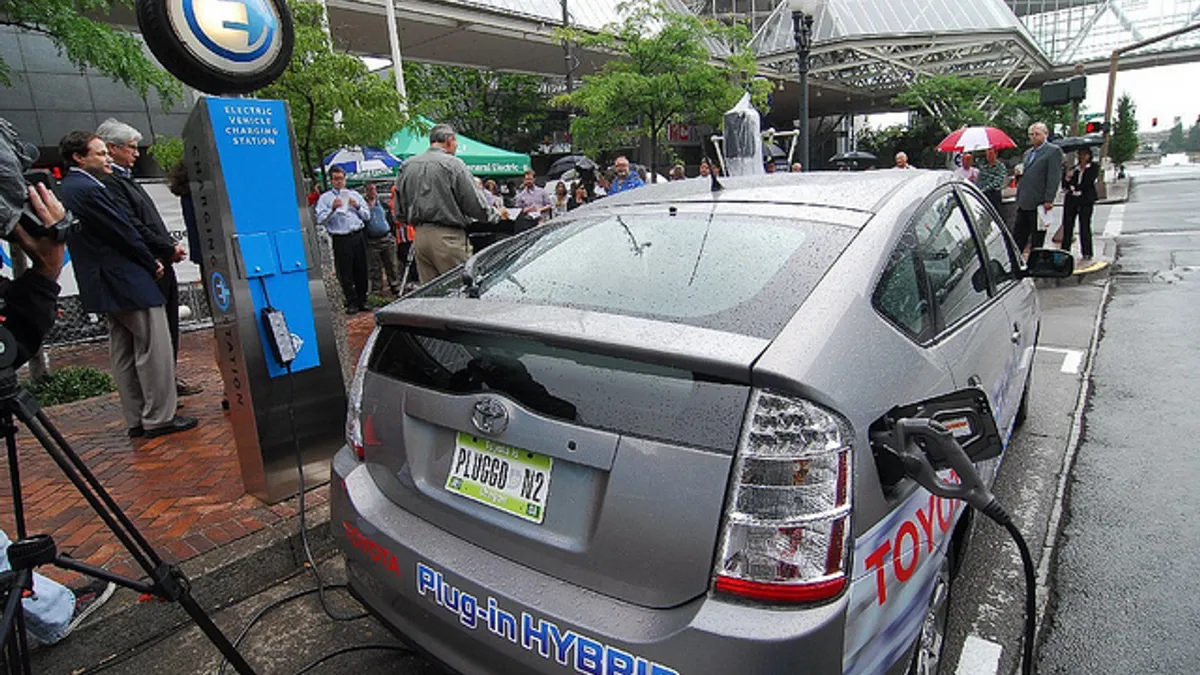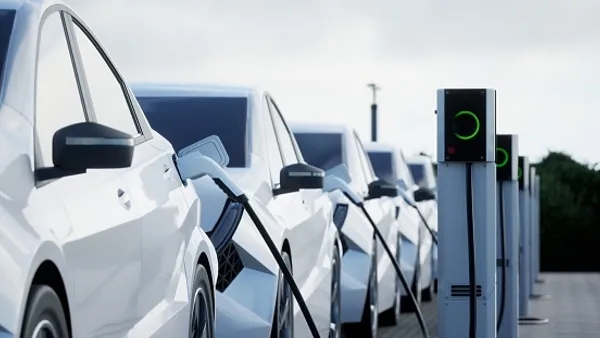Dive Brief:
-
The Oregon Supreme Court approved the use of a privilege tax to fund the state's Clean Vehicle Rebate Program on Sunday, after AAA Oregon/Idaho and Trucking Associations Inc. challenged the tax in November 2017, saying it violated Oregon's Constitution.
-
The program is integral to Democratic Gov. Kate Brown's 2017 initiative to address greenhouse gases and climate change. One of the goals of the initiative is to have 50,000 or more registered and operating electric vehicles (EVs) in the state by 2020, according to Oregon Department of Environmental Quality (DEQ) air quality planner Rachel Sakata.
-
The clean vehicle program offers both a standard rebate option and a "charge ahead" option for qualifying low-to-middle income (LMI) customers. The standard rebate is $2500 towards a purchase or lease of a new EV with a battery capacity of 10 KWh or more, and $1500 with a battery capacity of less than 10 KWh. Charge-ahead rebates are worth $2500-$5000.
Dive Insight:
Oregon's new rebate structure joins a host of other legislative moves from states across the country hoping to accelerate EV adoption to help meet their carbon emission goals.
While many states, like Oregon, use policy in an attempt to grow the EV market and incentivize consumers, other states have passed legislation in recent years to penalize EV drivers.
Rebate programs were the second most common action regarding EVs in 2017, following the consideration of additional fees for EVs because of a decline in gasoline tax earnings, according to the 2017 50 States of Electric Vehicles Report.
Environmental activists have argued state disincentivization comes in part from big oil pressure, including a reported $10 million annual campaign by the Koch brothers against EVs.
DEQ hopes to encourage broader accessibility to EVs through the program, which is the intent behind the "charge ahead" component for low income drivers, Sakata told Utility Dive. Because of the legal setbacks, the program isn't expected to be fully implemented for a few more months, but Sakata says they hope to find more options for affordability once the program is implemented.
The variation in rebates under the Oregon program depends on whether the vehicle is old or new, and whether the customer is leasing or purchasing. Qualifying LMI purchasers can get up to $5,000 if they purchase a new vehicle.
Other investments under Brown's initiative include road, bridge, freight and public transportation infrastructure, as well as efforts to reduce traffic congestion, make biking more accessible and incentivize EV use.















